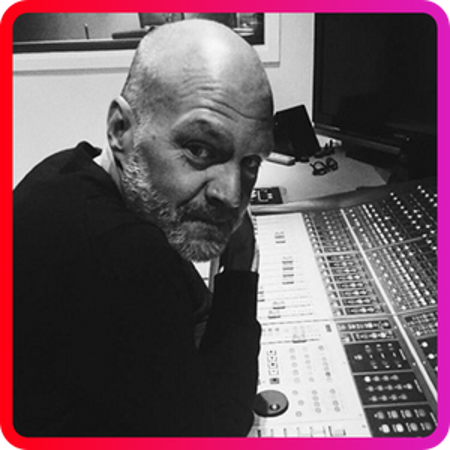Mike Hanson’s Journey from Radio to Podcasting and the Lessons for Marketers
A Deep Dive with Mike Hanson of Pod People
In this special Marketing Made Clear episode, I had the privilege of speaking with Mike Hanson, founder of Pod People Productions and Thelonious Punk Production. With over 30 years of experience in the radio and music industry, nearly 20 of those at the BBC, Mike has worked on a plethora of successful projects. Now a pioneer in podcasting, Mike’s insights into content creation, audience engagement, and the evolving media landscape are invaluable for marketers and aspiring podcasters alike.
This article explores the key takeaways from our conversation and provides lessons that marketers and podcasters can apply to their own ventures.
The Marketing Made Clear Podcast
This article features content from the Marketing Made Clear podcast. You can listen along to this episode on Spotify:
From Radio to Podcasting: The Evolution of an Industry Veteran
Mike’s career began at age 16, working at his father’s country radio station in Calgary, Canada. His journey took him across borders and into roles at iconic institutions like BBC Radio 2 and BBC 6 Music. Reflecting on his time at the BBC, Mike described the shift from live radio to podcasting as akin to moving from live performance to studio recording. Both mediums demand different skill sets, but podcasting offers the unique advantage of creative control.
However, the transition wasn’t without challenges. As Mike noted, the BBC was slow to adopt podcasting, despite the growing popularity of the medium after the success of shows like Serial. Frustrated by this lack of innovation, Mike took the leap into podcasting full-time, founding Pod People Productions.
Key Takeaways for Aspiring Podcasters
Mike’s journey into podcasting is a testament to taking calculated risks. Here are some of his insights that every aspiring podcaster should consider:
- Define Your Objectives and Audience
- Mike emphasised the importance of clarity. “Why do you want to do a podcast?” and “Who is your audience?” are the two critical questions to answer before launching.
- For niche topics, success isn’t about mass appeal but rather about reaching and resonating with your specific target audience. Mike shared the example of an insurance podcast that, with 1,500 listeners, captured a quarter of its potential market.
- Be Realistic About Success
- Success in podcasting is relative. While large-scale shows might boast millions of downloads, smaller, targeted podcasts can deliver exceptional value to niche audiences.
- Create with Longevity in Mind
- Podcasts have a long tail. As Mike explained, episodes remain accessible indefinitely, allowing for continued engagement over time. This makes podcasting a unique tool for legacy building, compared to ephemeral advertising mediums like print or online ads.
- Stay Passionate and Flexible
- Passion shines through in podcasting. Mike shared the story of a niche bat podcast whose host’s enthusiasm captivated even those outside the subject’s typical audience. Similarly, flexibility—adapting to new content or formats—can keep a podcast fresh and engaging.
From Startup Radio Stations to Podcast Giants
Mike’s radio career was shaped by his experience in startup environments, including the launch of BBC 6 Music and Talk Radio. These formative years taught him about audience engagement and the importance of adaptability. When 6 Music faced potential closure due to low audience numbers, a passionate community rallied to save it, highlighting the value of cultivating a loyal listener base.
The Role of a Producer: Behind the Mic
Mike’s explanation of the producer’s role in radio and podcasting was enlightening. Producers are the unsung heroes, managing everything from scriptwriting and guest booking to technical execution and creative oversight. For podcasters, understanding the producer’s multifaceted role is essential, whether you’re producing solo or managing a team. Have a listen to my podcast with Mike to learn more about the role of a producer.
The Creative Element: Music in Podcasting
One of Mike’s unique contributions to podcasting is his ability to craft bespoke music for shows. Drawing inspiration from his musical background, Mike has composed theme songs for various podcasts, including Anna Webb: A Dog’s Life. He views music as an integral part of a podcast’s identity, enhancing its appeal and memorability.

Marketing Lessons from Podcasting
Mike’s insights aren’t just valuable for podcasters, they hold lessons for marketers too. Here’s how:
-
Niche Targeting
- Just as podcasts thrive on serving specific audiences, marketing strategies should focus on well-defined segments rather than trying to appeal to everyone.
-
Long-Term Value
- Podcasts exemplify the principle of long-term ROI. For brands, sponsoring a podcast means associating with content that continues to generate engagement long after the initial campaign.
-
Authenticity Wins
- Authenticity is key in both podcasting and marketing. Mike shared how audiences respond to genuine enthusiasm and expertise, which applies equally to brand storytelling.
Final Thoughts: A Leap of Faith
Mike’s leap from a secure role at the BBC to the uncertain world of podcasting is an inspiring example of following your passion. His success underscores the importance of adaptability, creativity, and a clear understanding of your goals.
For marketers, podcasters, and entrepreneurs, Mike’s journey offers a blueprint for navigating the challenges of building an audience in today’s crowded media landscape. As podcasting continues to grow, the lessons from pioneers like Mike will remain relevant for years to come.
If you’re considering starting a podcast, remember Mike’s advice: know your “why,” define your audience, and be prepared for the grind. With the right focus and dedication, podcasting can be a powerful tool for both personal expression and professional growth.



